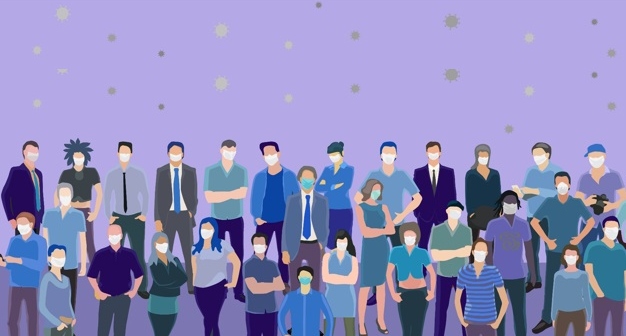Hong Kong, 21 October 2020: We have all willingly made sacrifices in Hong Kong’s largely successful fight against Covid-19 but, as strict social distancing rules stay in place despite the low number of new cases, it is worth remembering the need to balance public health interests with individual rights. Simply put, once you surrender certain freedoms, it can be difficult to win them back.
From Friday, Hong Kong residents can go on local tours in groups of up to 30 people, raised from the previous limit of four, while permitted attendance at wedding ceremonies and business meetings will be increased from 20 to 50. But the mandatory wearing of face masks outdoors – a rule imposed in late July when new daily infections were in three digits – is still in force, the only exemption being for someone exercising. Outdoor public gatherings remain capped at four, while no more than four people are allowed on each table in a restaurant. The ongoing closure of public beaches, meanwhile, continues to baffle many.
The reason for these measures remaining, we are told by the authorities, is to mitigate against an anticipated “fourth wave” of coronavirus infections this winter. Our Chief Executive Carrie Lam says the city has not met the criteria necessary to relax social distancing measures further. While acknowledging the need for caution, it is still pertinent to ask exactly what those criteria are.
Similarly, the concept of mandatory testing for Covid-19 is being bandied about. Our government has confirmed it is studying proposals to create a legal framework to compel people to get tested, although it has not specified whether this would apply to certain high-risk groups or all residents. “Unethical and unwarranted” was the response of a doctor friend of mine. For the record, Hong Kong logged just five new Covid-19 cases – four of them imported – on Tuesday, taking our city’s total to 5,261 confirmed infections with 105 related fatalities. We are told to expect eight new cases today.
The seismic economic impact of Covid-19 – both locally and globally – is underscored by today’s announcement from Cathay Pacific that it is making 5,900 staff redundant, abolishing a further 2,600 unfilled posts, shutting down its regional carrier Cathay Dragon with immediate effect, and asking its Hong Kong-based cabin and cockpit crew to sign new, cheaper contracts. Of the company’s 35,000 headcount, 24% of roles are being eliminated. As a frequent flyer – at least until last March – and loyal CX customer, I must say this news, while unsurprising given the state of the world aviation industry, is profoundly saddening.
At least Cathay can expect more regular flights to Singapore after the much-trumpeted announcement of a travel bubble between that city and Hong Kong. The two governments have agreed in principle to exempt residents of both jurisdictions from any form of quarantine if they test negative for Covid-19 before flying. There is no exact timeframe for this to start but we are told “within weeks”. While welcoming this development, it is worth asking why we can set up such an arrangement with a city almost 2,600 kilometres to the south but not neighbouring Macau and Guangdong Province, despite official discussions having meandered along for several months.
Still on the topic of travel, plans to upgrade Hong Kong’s much-maligned taxi services by introducing a new class of premium cab have gone down a cul-de-sac. The proposed new law would have allowed some 600 premium taxis to operate what the government described as “personalised and point-to-point public transport services of higher quality” with online hailing features, Wi-Fi and phone charging ports. Naturally, there was fierce opposition from certain sections of the industry. However, lawmakers scrutinising the bill ran out of time before the Legislative Council’s summer recess and it will not be re-introduced. Hong Kong’s antitrust watchdog, the Competition Commission, last year called for wider reform of the taxi trade after the industry generated a record number of complaints in 2018.
Thankfully, I’m spending less time in taxis these days. The cooler weather makes the tram a logical option while walking back to the office from a business lunch is now much more comfortable. I’d like to lose the mask, though.
Stay safe and well, everybody!
Colin Cohen
Senior Partner
Boase Cohen & Collins



